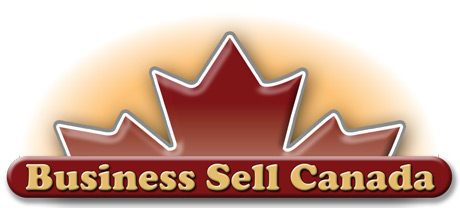|
Get Ready to Sell Your Business
by Mike Merritt
Business Sell Canada
What do I have to do to get ready while I'm waiting to find
the right buyer for my business ?
If all that you're really selling is just your business assets made up of some
previously used equipment, perhaps some new inventory, as well as some
lists of your customers, suppliers, and processes, then you probably won't
need to do much of work to get ready. For the completion of the sale,
you'll just need to write a simple "Bill of Sale" which lists
what's included in the sale. This can be traded with the Buyer for
his certified cheque for the agreed amount. You should remember
to include Provincial Sales Tax and/or GST/HST in the calculation of
the total sale price (which you will then remit to the government and
the new Buyer will claim as an expense of his new business).
If, however, you're selling a Limited company, a building (real estate),
a vehicle, the take-over of a lease, or if you have existing employees,
etc, then you definitely will need to retain a lawyer to handle all of the
transactions and to give you escrow - which is his guarantee that even
though things may stretch out over a few days ... that, in the end, the
correct documents will all be signed, registered and agreed to and that
the buyer's payment is good, and that nobody rips the other person off by
reneging half way through and stealing the money or stealing the business.
I would suggest that Buyer and Seller initially spend time to negotiate and come to a
complete agreement with a signed Letter of Intent that covers all of the
possible things that have to be considered, transferred/sold; and then, give
this Letter to the lawyer to make it all legal and registered. The lawyer
will probably add a few phrases to the agreement to protect his client from
things that nobody thought of, but the basic agreement of what is to be sold
should be worked out beforehand between the Buyer and the Seller.
Five things that you can do in advance preparation before finding a Buyer:
1. Visit your Lawyer and tell him that you're planning to sell your
business and ask him if he will work for you, and what his fees are,
and what documents/information will he need. He may give you a draft
Letter of Intent that you can use in talking with a Buyer;
or at least a list of things that you should consider.
2. Talk with your Landlord (if you rent a building or storefront) to
tell him that you intend to sell the business and to arrange to terminate
your lease (you will pay all of your own outstanding expenses) and also
ensure that he will sign a brand new lease with the Buyer (that you have no
liability for whatsoever). He'll probably want to meet the Buyer and ask
him for bank/financial records/references and have the right to approve/refuse
him. But it is always best to find out any Landlord requirements in advance.
You may need to have similar discussions if you will be asking the Buyer to take
over an existing car lease or the lease of office equipment or store fittings
loaned to you by a food vendor; or a Liquor Licence, Lottery Licence,
Health Certificate, etc.
3. You should be prepared to fire/terminate all of your existing
employees and pay out all of their outstanding remittances, income tax,
withhold, vacation pay, etc. The new buyer will immediately "hire"
these same employees and he will start them with a new Income Tax account,
CPP, vacation pay, rate of salary, etc. If the firing and hiring are
immediate and all inclusive then the employees (probably) won't ask for
severance pay, notice, etc. If somebody gets dropped or the pay
rates change, then you'll probably be liable for notice and severance
pay for that person(s).
You might require the new Buyer of your business to guarantee in
the Letter of Intent to employ all of your current employees after he
takes over, at their existing rates for a minimum of 2 months or such
... to keep you from having these problems. This probably would
be beneficial to the Buyer in any case, since it will provide continuity
with your existing customers during the changeover.
4. You will want to be prepared to close all GST/HST, tax, CPP accounts,
utilities, etc. effective the day that you sell. Or at least be prepared
to make their correct and final payments. It's always best to insist that
the new Buyer open his own accounts, thereby eliminating any cross-liability,
outstanding penalties, deposits, etc.
5. You will have to decide in your mind how you're going to handle
the completion and payment for any work that will be in progress at the time
of the sale; also, what you are going to do with outstanding billings,
accounts receivable, etc.
You should spend time now talking with these people/gov't agencies and
obtaining copies of the correct forms, etc. so that you'll be ready when the
time comes to negotiate with the Buyer. You'll find out, for example,
that the Electric Utility charges $100 to come around and do a
"meter reading", and that they need 2 weeks advance notice,
and that the new "owner" has to pay a "deposit", and that they
don't have to disconnect the power ... or some such similar things.
So ... Are You Ready ?
Please note
that I am not a licensed business broker so I cannot legally give you advice on
your sale. What's written above is based on my personal experiences ...
which you're welcome to consider in accomplishing your sale - but you should
not take it as professional or legal advice.
This Article is copyright © Mike Merritt
Business Sell Canada (https://www.BusinessSellCanada.com)

|


![[ Go Back ] [ Go Back ]](/images/redback.gif)